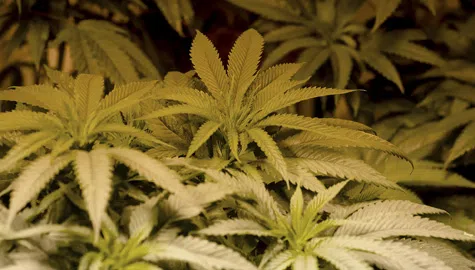
By Greg Bishop/Illinois Radio Network
SPRINGFIELD – Illinois lawmakers are learning more about what it takes to legalize marijuana for recreational use from the state that pioneered it – Colorado.
During a joint session of various members of the Illinois House and Senate, Colorado Department of Revenue Executive Director Barbara Brohl explained various aspects of her state’s marijuana regulations.
Brohl said Colorado had three main guideposts when crafting its legal cannabis laws several years ago: keep it out of the hands of kids, out of the hands of criminals and out of other states.
While proponents of legal marijuana say it will curb the criminal black market, Brohl said Illinois should consider not allowing citizens to grow pot privately.
“Grey market is what we call when you can cultivate legally, but it’s distributed illegally, and in Colorado we’ve had some concerns about that,” Brohl said.
The proposal in Illinois would allow private growth of several plants for private consumption.
State Sen. Chapin Rose, R-Mahomet, raised his concerns about marijuana still being illegal under federal law.
“How do people from a legal rationale look at this and not think that depending on who’s sitting in the U.S. Attorney’s Office, that you couldn’t charge one big conspiracy on this whole thing?” Rose asked.
Brohl said Colorado doesn’t have any liability.
“Our constitutional evaluation was that there was a difference between facilitation and regulation,” she said.
Brohl said the state is merely regulating legal pot but acknowledged the private marijuana industry is taking on the legal liability.
Several other Republicans asked questions about banking regulations and access to children.
As for revenue, Brohl said in the last fiscal year, Colorado brought in more than $140 million. So far this fiscal year, the state has generated more than $150 million, and the year isn’t over yet.
“It’s not to pad the general fund,” Brohl said of Colorado, which has a $27 billion annual budget. “Even $200 million a year isn’t going to make that much of a difference.”
Most of the money goes to public education, including school construction. Brohl said Colorado also uses the money to fund the regulations of legal weed and for various educational and social service program.
As for usage, Brohl said studies conducted both before legalization and after shows no statistically significant difference in the number of people using marijuana, but they do have indications that more and more people are getting out of the black market and into the legal, regulated and taxed market.
“There’s also a value that people place on being able to buy it in a safe manner, to buy it in a location that has some security where there are lights, and it’s not in a back alley,” Brohl said. “There’s a value that people have placed on buying marijuana that has been tested so they know it is safe, and that they know if they’re found … in possession of it that it will be lawful because it’s still illegal to buy it in the back alley.”
State Sen. Heather Steans, D-Chicago, one of the sponsors of the measure to legalize pot, said to expect more hearings where lawmakers “will seek lots of input on how this might be structured to work well in Illinois.”
Steans doesn’t expect any action on the effort until January at the earliest.




